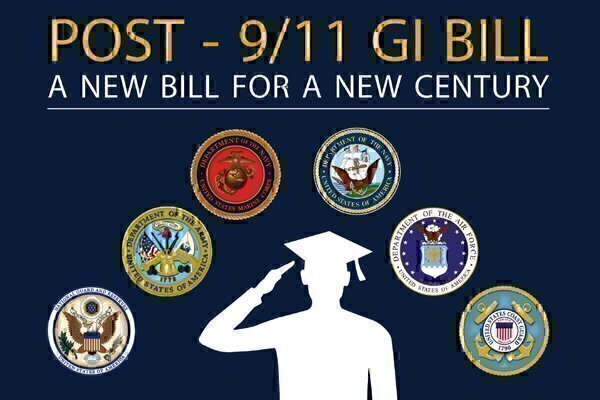#SPONSORED
If you’ve earned your GI Bill benefits, you might be unsure of what exactly to do with it. After all, hours of sitting in front of someone teaching off of PowerPoint is never something you wanted (though you’ve already gotten plenty of it) and a future of sitting behind a computer has no appeal.
Fortunately, there’s plenty of education options out there you can use your GI Bill for that won’t leave you living through Office Space. Here are 3 great alternative ways to use GI Bill benefits.
Licenses and Certifications
In order to perform a number of jobs in many states, you have to complete a certification test. You can use your GI Bill toward paying for the costs of these tests. It will cover up to $2,000 per test. It won’t cover any additional fees you might have to pay, but it is a nice way to make sure that becoming a Realtor, insurance salesperson or mechanic doesn’t break the bank you before you even start working.
Many employers who come to veteran recruiting events work in fields that require these certifications, so remember that you have the cost of getting the job pretty much covered with your GI Bill.
Trade/Vocational-Technical School
Like working with your hands? Enjoy fixing or building things? Then use your GI Bill to go to a trade school.
Trade or vocational-technical (vo-tech) training is generally more technical and hands-on than academic degree programs. Some examples include HVAC repair, emergency medical training, truck driving and auto repair. These are jobs we see people doing all around us.
The people who do them are the men and women who keep civilization running in a lot of ways. Next time you drive across town, count how many trucks you see for HVAC repair, glass installation and other trades. How many of the cars that you see on highways are semi-trucks transporting one thing or another to stores?
You’ll be able to make a living practicing a trade almost anywhere in the country. If the thought of hours in a classroom seems like a nightmare, look into the trade/vocational programs near you to see if they’re a better fit. You don’t have to trap yourself behind a desk to make a good living.
READ NEXT: HOW TO PROTECT YOUR GI BILL BENEFITS
What’s more, the skills many veterans have learned in the military may be worth credit toward the completion of vo-tech training. These schools will usually help you evaluate if your real-world, hands-on experience counts for credit when you apply.
Flight School
That’s right, you can use your GI Bill to become a pilot. Military aviation is highly selective and competitive, so many who join don’t get the chance to fly they always dreamed of. Once you get out, though, that option opens up again.
The GI Bill will help you train for rotary wing, B747-400, and dual engine flight. You can also use it to receive training to become a flight engineer. Here are the details from the VA. The process is very similar to using it for academic college programs. Aviation Schools Online (a database for aviation schools around the country) provides this list of qualifying aviation schools and programs.
Make note that if you are looking to work as a MEDEVAC, police or another kind of service-related helicopter pilot, you will need to get a commercial helicopter license, which you must pass a series of requisites to receive.
Explore Your Options!
Just because you don’t want to go to college doesn’t mean you shouldn’t use your GI Bill. You earned it and that money is there for you to use. Don’t let it go to waste! Use it to find your licensing process, go out and get certifications for the profession you want to pursue, or pursue your aviation dreams.
Kathryn Zurmehly served as an Army Officer for five years, reaching the rank of Captain (O-3) and learning a bit along the way.
READ NEXT: VETERAN APPRENTICESHIP PROGRAMS










